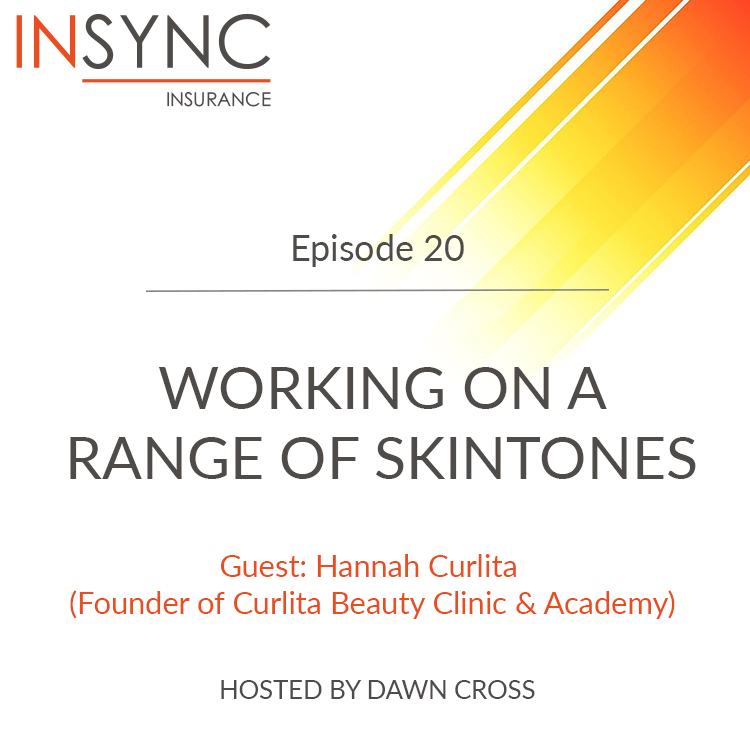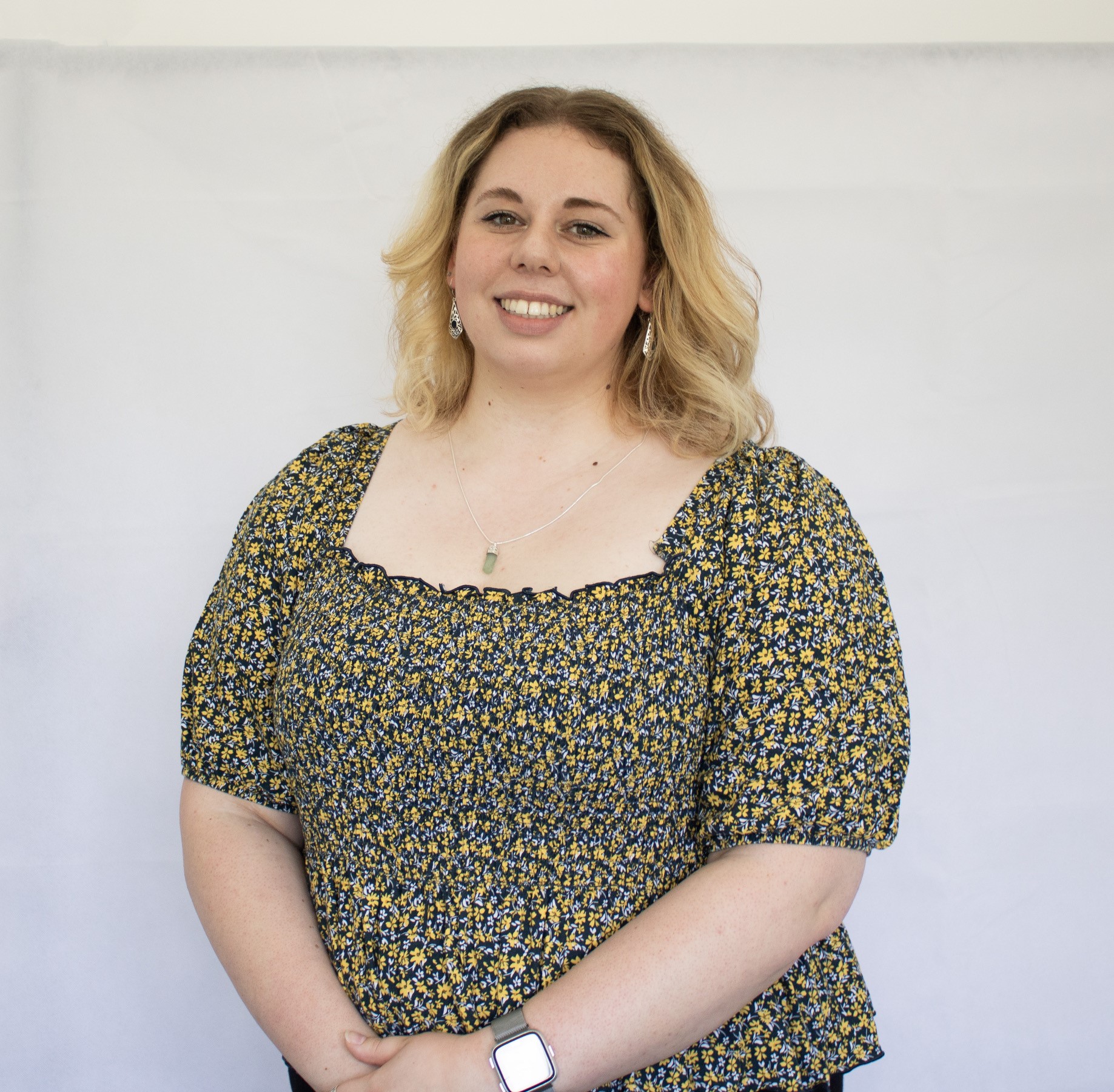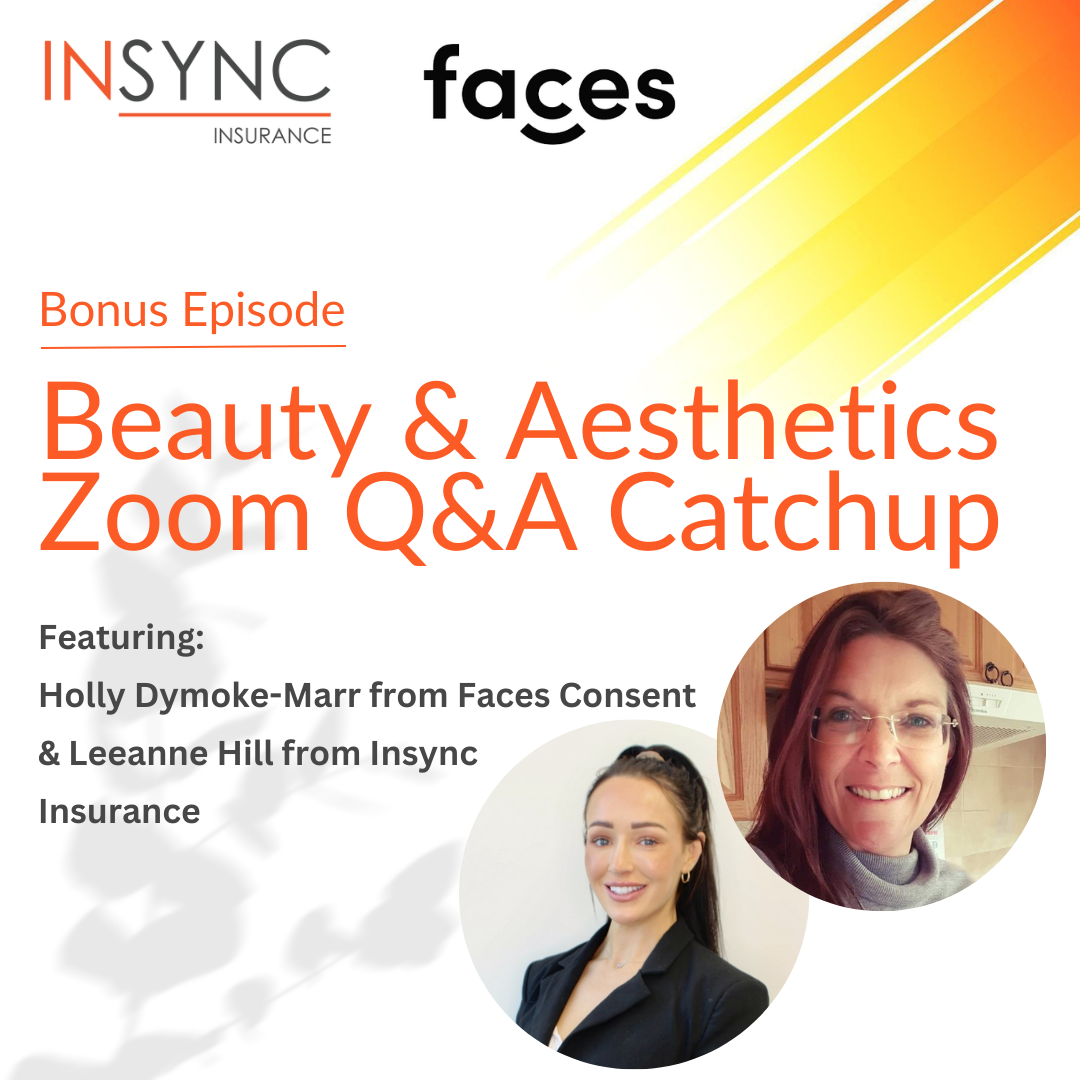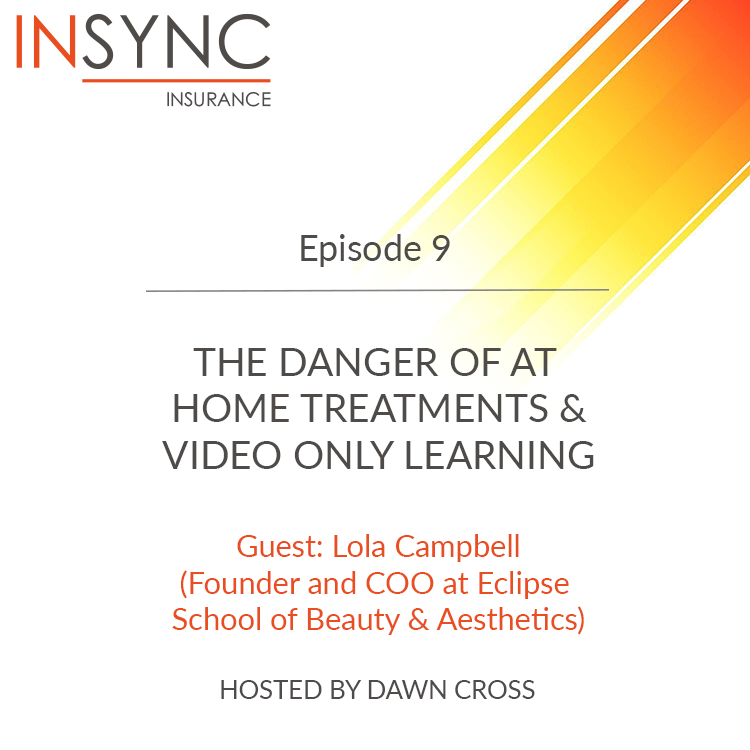Episode Transcript
Speaker 0 00:00:05 Welcome to the Insync Insurance Podcast. I'm your host on cross and today we'll be discussing working with a range of skin tones in aesthetics. We have returning guests, Hannah Cleta from Coleta Clinic and Training Academy. If you enjoy a podcast, make sure to leave a rating on your favorite podcast directory. Well, so I won't get you to introduce yourself cause obviously we've already had one episode <laugh> of um, chatting to you so we know all about you. So today we're discussing working with black and brown skin within aesthetics of sea. It's very different kettler fish and it's something that as we kind of spoke about previously, probably needs a lot more learning and a lot more scope on really, which is why we're doing this episode today. So my first question is, what is the most common mistakes people make when working on dark skin within the aesthetics industry?
Speaker 1 00:00:57 Well, first of all, I wanna say I can't talk on injectables because I don't do them, but I do everything else. Yeah. Well it's things like as a professional from the consultation period, it's asking the right questions to get to know your client. Um, even having the right questions on your consultation form people. For example, I had, I was mentoring somebody in my clinic and teach 'em things and I let them kind of lead and then I'll chip in if they need to, you know, change something, whatever. Yeah. So we have a client booking who was of a Indian um, heritage. And another thing, it's about using the correct terminology as well, whereas a heritage not just like an Indian person or a black person, you have to get the correct anyway. Um, and the lady came in and the, I call her a student.
Speaker 1 00:01:45 The student had put her with a male practitioner. Some cultures don't allow that. Mm-hmm. So it is, it's the, from that point, the consultation to differentiate what, who, who's coming in. That's why when you have things like your booking system, when you're sending consultation forms out, have these questions on there so you can be aware of who you've actually got coming in as an individual. Not just these are the general questions we ask. Does that make sense? Yeah. And cause it's like also how do you know if someone's not gonna come in in a hijab and they're not actually allowed to take it off? So you think actually I can't get to a certain area of their face and you need to be prepared for that. Yeah. Is there something we can do? Is there something we can say, is there something that you can kinda like tuck under or do you know what I mean?
Speaker 1 00:02:29 Mm-hmm. <affirmative>. Yeah, it's things like that and having questions. There are some cultures that use bleaching agents. Now I know a lot of them aren't legal. Um, but it doesn't mean people can't get them. So you have to try and word certain things like we know are, are aware that things are out there, but you can't just outright come and say, excuse me, do you use bleaching agents on your skin? They're not gonna admit to that. You have to count whether the ingredients come out. Ask specific questions about do you use products with X, Y and zed ingredient in and try and get it out of them that way. So it's just being aware. Um, yeah and general treatments, things like skin peel. So there are different, there's, there's so many brands nowadays. So so many brands and generally brands will give you the education on their product to say this is okay for someone fits Patrick's scale three or someone fit fits Patrick's scale, five, six, whatever.
Speaker 1 00:03:24 But be again, being aware of what's in them. Because sometimes someone might show um, a symptom that's not okay for that certain treatment, that product. So it's just literally being aware and things like, let's say microneedling depth, if someone's prone to kilo scarring, maybe don't go as deep with the needles as the recommended depth. Maybe like use your initiative and say, actually one maybe should I even use this needle, do this treatment on them. Um, and two, let's just make it a little bit lighter and see how they react after to the first treatment and then go from there. It's just literally using your initiative with different people and different ethnicities and colors and skin tags.
Speaker 0 00:04:03 Oh definitely. And I think it's key as well. You were saying about, you know, asking if people using bleaching treatments. Yeah. You know, referring back to our first conversation, you know, we need to know the, the history and everything else cause you never know, maybe they've done one recently and then what you are doing is gonna react with it terribly and you know, you've got a complication on your hands. Yeah. So it's just doing those nice probing questions or maybe if you don't feel confident that they're telling you the exact truth, maybe it's not worth doing the treatment until they
Speaker 1 00:04:31 Thousand
Speaker 0 00:04:34 Percent. Yeah.
Speaker 1 00:04:35 Yeah. If you're not comfortable, just don't do it because your client's gonna be upset for like half an hour because they can't have the treatment. But they'll be more upset if you do some of it and then they have a reaction. Imagine that. And then it could be a legal battle and you just, just everything. Just don't want that. Um, yeah, no it's worth always asking and getting your terminology right. This is one of the reasons why I started an academy as well because I've gone on different courses over the years, um, and a lot of things aren't even covered and take me out of the industry. I'm a black woman. Mm-hmm. Like I'm lucky I know myself Cause there has been times where I've had to say, oh excuse me, I I that that's not right for someone like me. Yes. It might be the generalization of this is the product, this is what it does, whack it on everybody, but no actually you can't. Yeah. So I know what it's like to be the professional and the client and the student let's say. So that's why I started an academy. One of the reasons why I started an academy. So everyone actually has this tap of learning cause it's not included in a lot.
Speaker 0 00:05:35 No. And it's um, it's just really key as well because obviously, you know, you can't just, I think you know, for example, you know, if you're a makeup artist, you know, you can't just learn how to do makeup on like very, very light, light skin and then not other skin tones as well. And it's of course, you know, you wanna at the end of the day be able to accept as many clients as you. You are able obviously without pushing over and over booking yourself. Yeah. And you know, if you can't end up doing it because you know they've got certain type of skin, it's not very, I guess fair on yourself and also on them. Cuz then they, you know, they won't be able to trust you to do it well or you just won't be able to book them because you just haven't got the, the knowledge there to be able to serve them essentially.
Speaker 1 00:06:22 Yeah.
Speaker 0 00:06:24 Um, bro, so our next question is, why is it important to learn aesthetic techniques for a range of skin tones?
Speaker 1 00:06:32 I wouldn't necessarily say techniques from my point of view. Yeah. But I would also always, always advise someone to just be gentle. Mm-hmm. Cause we are more prone to damage and we can damage easier. Um, and know your devices and your products. Mm-hmm. Let's say devices, let's say example l e d, like therapy. Absolutely. One of my favorite treatments to do and even have actually. Um, so for someone of color, red light therapy for collagen production and to boost blood circulation, it's great, it's great basically for everybody. Mm-hmm. <affirmative>. But then there's a blue light that is good for B killing bacteria. So for acne breakouts, um, house with inflammation. So everyone's prone to acne whether you're black, white, Indian, Asian, anyone. But that actual specific light, the blue light Fitzpatrick three four on the scale, it stimulates pigment cells called melanocytes, which basically increase pigmentation, which is what we as black people, brown people into people we don't want. Cause we are generally trying to get rid of those. Yeah. Cause we, we mark, say we've picked a smile or we've got a wound, whichever, or the area that we've wounded will go dark and that's called um, hyper pigmentation. Whereas probably on someone like yourself it would go red. Mm-hmm.
Speaker 1 00:07:43 So you'd be okay to go onto the blue light. But generally we are trying to get rid of hyperpigmentation and yes. Sometimes the blue light, depending on the strength, that type of thing, um, could cause more. So it's generally knowing your devices and just because companies say Yep, this does this, this does that. It's again, knowing your clientele. Yeah. Knowing ethnicity, understandably you're not gonna know every single thing about every different culture and ethnicity. But if you can get to know the basics, which is kind of what we're gonna touch on today. Mm-hmm. Um, it it's a great start.
Speaker 0 00:08:13 Oh definitely. And you never know, you might have your clients swell that really know their skin and know their stuff. Yeah. So, you know, in your consultation you can just ask them. It's like what have you found that's worked good for you? Was there anything that didn't work? And then you can advise and adjust your treatment plan accordingly as well. A thousand
Speaker 1 00:08:30 Percent. But this goes across like no devices and products across the whole of the beauty industry. Like let's say nails. Mm-hmm. So we get black stripes on our nails. What we can get. It's very, very common in like black Indian Asian people, which can sometimes be mistaken for melanoma, which is a type of skin cancer. Mm-hmm. <affirmative>. I haven't got these lines myself. And one I would always say to the person, always go and have 'em checked out. Cause you just never know. We're not doctors. Well I mean some people in the industry are doctors and do aesthetics, but you know what I mean? Yeah. Um, I'm not a doctor so I would never know, but generally in ours it's the type of mole because of the melanin in our skin. Mm-hmm. <affirmative>. So nine times outta 10 they're nothing to worry about. But I will always advise someone to go and get them checked out.
Speaker 1 00:09:08 But if we go and get our nails done and want something, let's say like French, generally the base is clear with a pinky or creamy tinge. Yeah. It's your nail the nail tech having a color that's actually still gonna look natural but can cover, like, this is what I have on right now. The base of the nail, you can't see the lines. So we can still have that. Like it's, I've been places before where it's, oh, I haven't got that, I've only got clothes, sorry. And I'm think, oh, okay, well I'll just have red or I'll just have a color when really I want something, uh, we shouldn't have to make do when we're 2023 now. Like there's things out there that, that we can have that can still achieve the same end result.
Speaker 0 00:09:42 Definitely. And I think it's something that's, yeah, like you said, we are in 2023, like, um, if I remember it was last year that only recently the companies have come out with darker skin plasters, which I thought was absolutely insane.
Speaker 1 00:09:57 I screamed when I the,
Speaker 0 00:09:59 I don't blame you. Like I was just saying like, wait a minute. Like, cuz obviously I, I don't actually tend to use plasters much and obviously due to my lighter skin I don't tend to look for dark products. So when I read that and I was like, you are actually joking, like I was actually a bit fuming on my side of things. Cause I was like, why, why wasn't that, you know, common practice ages ago? Like
Speaker 1 00:10:20 It's funny isn't it? What the, it's the little things and then I understand like you, you weren't looking, it's not your reality. Mm-hmm. But it's generally us. Yeah.
Speaker 0 00:10:28 Yeah. And it, and it's insane. It's like, you know, there's, um, up until recently, especially with uh, ballet shoes, you know, the reason why their pink is supposed to uh, you know, blend in with tones. But then obviously they didn't accommodate for, you know, dark-skinned dancers and then obviously they had to wear the pink. And then it technically, I guess ruined the illusion of saying, I'm not sure, I'm not an expert in ballet. But it's only recently they've started doing it to their skin tones. Then obviously they're accommodated as well. And I was just like, that's an absolutely insane how long it took for ballerina shoes <laugh> to, to get to that point when there's been plenty of dancers over the years, you know, decades that would've benefited from that. Like it's absolutely insane. Um, ELAA, I believe we're gonna get off topic at this, right? We'll be ran to write all sorts of things. No,
Speaker 1 00:11:17 But I say going back, it's just good as a practitioner just to be aware of things. Like I say like the nail thing and things. We know things are natural in ourselves. As I said, the um, pigmentation lines and all nails. But generally we're very conscious of 'em. I'm conscious of mine. Yeah. I would never not have something that covers them ever on my nails. Yeah. It's just something just conscious of, and it is
Speaker 0 00:11:39 Honestly, it's like so simple to make that slight adjustment. You know, just do a bit of research or you know, ask somebody or you know, ask, you know, do like a poll. It's like, you know, if I've got any people like this, you know, what do you recommend? Like is there any products you like or what would you like to see when you come into my salon or clinic or whatever? See
Speaker 1 00:11:57 Clients, yeah. They'll, they'll tell your
Speaker 0 00:11:59 Clients. Lot
Speaker 1 00:12:00 Them, a lot of them will tell you like, a lot of my clients are really outspoken, but I make sure I have that kind of environment where they're comfortable to be outspoken. Yeah. Because I don't, um, I don't say that I know everything about everything I don't. And if there's something you wanna say, I want you to feel freely and to, this is like a no judgment zone. Say what you need to say. Ask me what you need to ask me. Even I've had, um, different clients, you know, when, sorry, I'm trying to get off topic, but that's fine. The whole George Floyd thing was happening. Yeah. Like you said, you weren't aware of the plastic, you didn't even think it's a thing. It wasn't your reality. So as were a lot of my clients, so I made my, let's say clinic and community open. Ask me questions you're not gonna know. If you don't ask, you're not gonna learn. So I'm open to help you.
Speaker 0 00:12:44 Yeah. And it's, it's I think always good as a, like a baseline just to be open to learning constantly. Especially percent with any industry you work in, there's always gonna be new techniques, new things to learn. And you know, if you stay stagnant in your ways, you're also possibly gonna, you know, put someone in danger eventually if you're not willing to update and and everything else. So it is always good just to have that openness from the get go no matter what you're doing, where you're going or what you're working in. Mm-hmm. <affirmative>. So my next question for you is, are there any uh, treatments that would you wouldn't recommend for those with a dark skin?
Speaker 1 00:13:24 Not per se, but I will always say go to a professional rather than doing things at home. There are so many people, especially like that lot when everyone was doing everything at home. Just order. There's still a lot of people we're trying to get out their habits. <laugh>,
Speaker 0 00:13:38 Um, no cutting your hair, no bangs please. <laugh>.
Speaker 1 00:13:43 Yeah, no. Go to somebody who knows percentages and ingredients and like I say needle depths, that type of thing. Um, yeah, generally go to somebody who knows. And like I say, even though a company may say this product's suitable for Fitzpatrick 3, 4, 5, 6, it actually might not. If you know that ingredient and treat your client as an individual, if you look at them and they've got a certain symptoms and you think, ah, actually I wanna use this but it might be too strong mm-hmm Something else do do, do something else. Even if it's you are sitting there and giving them advice on home care products. So they can essentially build up tolerance first to their ingredients before they have the treatment, which is obviously a higher percentage. Do it that way. There's always ways around things and as I said before, if you think I'm not sure about this or I don't think you should have this, tell them Hmm. But as I say, companies um, will generally always tell you what product or or treatment is recommended for who, um, do you know, do you know who's got it that clinic Care 14 medical, they run, um, yearly workshops that go through all of their products and exactly everything. Who's for who, what, um, symptom, what treatment or the rest of it. And if anything's changed from last year to this year, they'll tell you the change, they'll give you the evidence and that type of thing. They're really quite good actually.
Speaker 0 00:14:56 Oh wow. That's impressive. I love that. They've
Speaker 1 00:14:58 Just, yeah, they've just actually I say just like within the last year developed a product range, well starting to develop a product range for darker skin things like, um, they do a demo corrective, which absolutely flies out in my clinic, which is SPF F 50 mm-hmm.
Speaker 0 00:15:15 <affirmative>
Speaker 1 00:15:16 Foundation in one. Now I know you can go on the high street and get your foundation with SPF in generally doesn't do a lot. It's like, so on the high street you can imagine a cup of tea. Yeah. Making a, you put a little bit of milk in, obviously the milk is the SPF don't really do much, but a little bit effective. You need more than that. So they've developed something where it's actually got loads of it in which I think is great. Nice. Yeah. But it's quite not there for everybody yet. Like I can't wear it, but they're getting there. And I did say to them, if, if uh you need any help with development, let me know.
Speaker 0 00:15:48 I'll be, but again,
Speaker 1 00:15:49 You said the makeup part with the makeup artist thing earlier, it's no in the toes. Mm. It's not like, oh foundation that'll suit them. It'll work like that. You gotta think of undertones and that's where your collar theory comes in.
Speaker 0 00:15:59 Oh definitely. And I think a lot of companies, especially makeup companies, are still unfortunately falling a bit short with like, okay, we're just gonna have like 10 shades from from light to dark and then it's like that's, that does not encompass even, you know, 14% or so of the actual Right. World population. And you know, cuz I didn't realize that, especially with color theory and everything else that, you know, I've, I have like pink undertones or like I have pink on my cheeks mm-hmm. <affirmative> and it's like I need to be looking for a specific kind of color where I just thought, okay, I'm pretty, you know, I'm pretty light. I'll go for one of the lighter shades and then hope it Right. <laugh>. Yeah. And it's, it is just, you know, it's one of those I think hopefully as well as as time goes on, more companies will actually be developed a good range of colors and things that can reach no matter what audience. So then at the end of the day people feel happy and confident in themselves. But well with aesthetic treatments, you know, not saying that some of them are terrible, but you know, at least practitioners who have more of an idea so then everyone can come away feeling beautiful, confident what I've done. Yeah. Course to achieve and everyone's happy
Speaker 1 00:17:11 <laugh> literally. Yeah. Yeah.
Speaker 0 00:17:14 Uh, so my last question for you is what would you recommend for any current practitioners on how to expand their knowledge in treating a range of skin tones?
Speaker 1 00:17:26 Learn, literally do research the same one about there and there are, I suppose it's knowing what to actually search and look for. Mm-hmm Um, there are courses and things out there specifically for Fitzpatrick three plus specifically for dark skin. Um, there are a lot of professionals out there. I tell you who's a good one? Um, deja AO Deli. I think that's how I say her name. Um, she's written a book called Black Skin. You may have seen it.
Speaker 0 00:17:51 I think I've seen it floating around. Yeah, yeah,
Speaker 1 00:17:53 Yeah. Fantastic. I've literally read it so many times over <laugh>. Um, she's also done a course as well specifically for practitioners on black skin.
Speaker 0 00:18:01 Wow. And
Speaker 1 00:18:02 She changes from home skin care products to high street, to in clinic to treatments to other professionals to, honestly it's great. So yeah, I would look search for that. It's literally called Black Skin. You can get it the box even on Audible. Listen to me. This is like an, this is absolutely not nice
Speaker 0 00:18:19 <laugh>. Sure you're not sponsored. We have to disclose <laugh>.
Speaker 1 00:18:23 But yeah, there's quite a few courses out there. Don't be afraid to ask if you go on any courses in general, don't be afraid to ask your practitioner if they don't know or ask you a tutor. Should I say? Yeah, if they dunno, it might be a little trigger for them to actually get to know for them to go and do a bit more development. Mm. I'm trying to think. Dr. Oh, Dr. V, she called Dr. V, um, what's her name? Dr. Vinita Rotten. Rotten. Rotten. Um, she's got an absolute fantastic YouTube channel and she does a lot of it in bite size pieces. So she has a skincare range specifically for skin color. But she'll go into the science and why this product does this and why we need this and why it'll be different from someone who's fitzpatrick's. 1, 2, 3 Will, will. Does that make sense? So you actually understand it's great. That's one to look out for. I absolutely love her.
Speaker 0 00:19:07 That sounds really good.
Speaker 1 00:19:08 You know what, as take me again out of the professional capacity as a black woman, it's nice to be included.
Speaker 0 00:19:14 Oh that's really good. Yeah.
Speaker 1 00:19:16 For so many years. Especially me, I live in Stafford, which is like a predominantly white town. Mm. It things like when you like makeup, when you say I've never been able to until about a year, two years I'd say and just nip into town and grab a foundation or grab a consider. Do you notice like something all those years and I'm 34 now. Also just ask my dms. I always get people asking me certain things. That's why I try and put a lot of educational content out there because yeah, I know it's not covered in courses and people don't know. So don't be afraid to ask. If anyone comes across me, my dms are open. Literally ask what you want, Peter. I don't get offended easily. So even if you don't get the correct terminology, say what you're gonna say and I'll correct you on the terminology. I'll say, don't say this, say that. Because you might offend somebody if you say X, Y and Z.
Speaker 0 00:19:59 No, that's really good. Is there anything else you'd like to add, uh, for the end of this episode?
Speaker 1 00:20:03 Not really. A few tips for darker skin really. The older we get, the more dryer our skin gets. Mm-hmm. <affirmative>. So any treatment or product with hydrating ingredients in such as ceramides, hyaluronic acid, peptide, it's really push them towards us. We need them asking so that these products, um, ingredients will evaporate quicker Yeah. Than any other skin type and skin tone. And yeah. I've just done an aging series on social media actually about a generalization, but knowing I will always say, know your client and the age bracket they're in mm-hmm. <affirmative>, but then also knowing ethnicities and different skin colors. Yeah. So for example, I've broken my aging series down into twenties, thirties, forties, and 50 plus. Okay. But some things that say Fitzpatrick girl one to three will see in their twenties, generally that age bracket with darker skin, they won't see that till their thirties because we take longer to age. That type of thing. Yeah. So it's doing all those little things and being able good. Literally just learned. So if you are my socials, there's loads of things there.
Speaker 0 00:21:03 That's brilliant. Well, thanks so much for coming back on the podcast. It's been really informative.
Speaker 1 00:21:09 No problem. Anytime.
Speaker 0 00:21:12 Thank you to my guest today, Hannah Colita for talking about working with a range of skin tones and aesthetics with us. If you're interested in learning more about her clinic or training academy or just one chat, please visit www doc hannah colta beauty.com. I have been your host Storm Cross in Chin next week for another episode. NSYNC is one of the UK's fastest growing insurance providers offering comprehensive cover for SMEs and the self-employed across the uk. Our expert team can tailor your insurance, meet your individual business needs, and compare prices from my Lloyds of London approved partners. We offer a five star service and have been FIFA Platinum trusted winners four years in a.





